| | Trump’s tariffs kick in, China has worrying levels of debt, and costly wildfires spread.͏ ͏ ͏ ͏ ͏ ͏ |
| |   Beijing Beijing |   San Salvador San Salvador |   Abuja Abuja |
 | Flagship |  |
| |
|
The World Today | 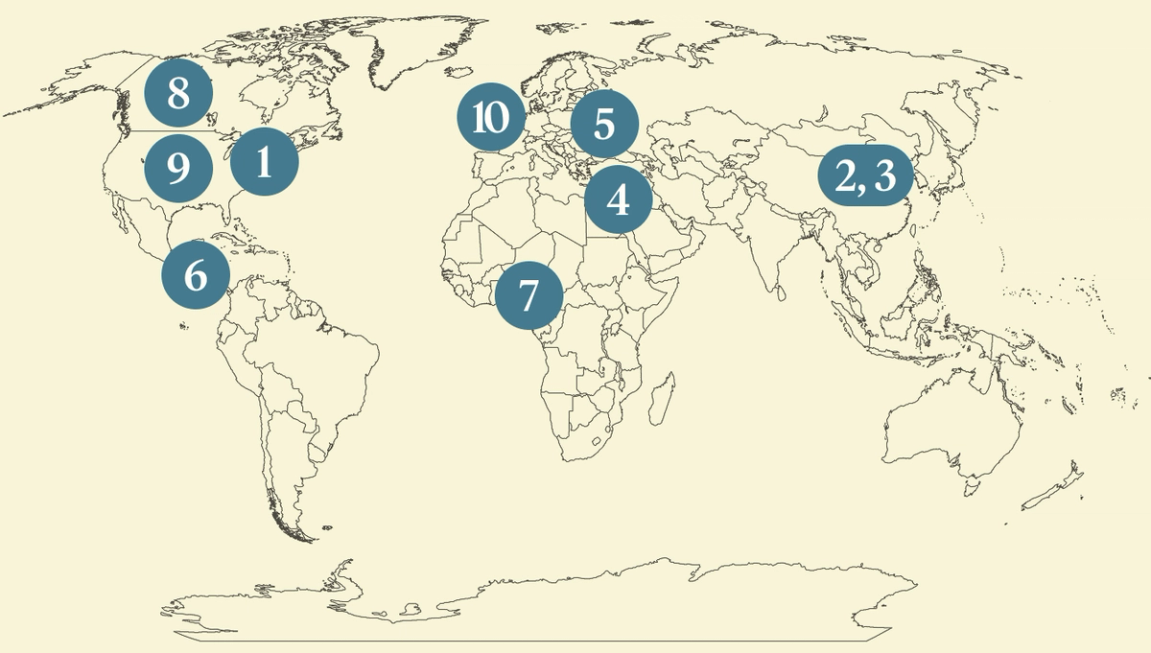 - Trump’s tariffs kick in
- Changing global trade
- China’s worrying debt
- Israel’s new Gaza plan
- Trump-Putin talks set
- US endorses Bukele plan
- Nigeria hunger crisis
- Costly wildfires spread
- Baseball’s female umpire
- Indian food crosses the pond
 Shifting sands, and a ‘dazzling’ and ‘psychedelic’ comeback album. |
|
US tariffs come into force |
 Carlos Barria/File Photo/Reuters Carlos Barria/File Photo/ReutersUS President Donald Trump’s global tariffs kicked in, reshaping international commerce by instituting levies on imports from friend and foe alike. Though some US allies have secured lower rates than were initially threatened, and Washington’s three biggest trading partners — Canada, China, and Mexico — are still negotiating theirs, friendly nations such as India and Switzerland have been hammered. The protectionist move pushed the effective US tariff rate to its highest level since World War II, with the prospect looming of further increases: Trump on Wednesday said he would impose 100% tariffs on imported semiconductors, after earlier threatening levies on pharmaceutical products that could eventually reach 250%. “Tariff uncertainty hasn’t gone away,” HSBC said in a note to clients. |
|
China exports point to trade shifts |
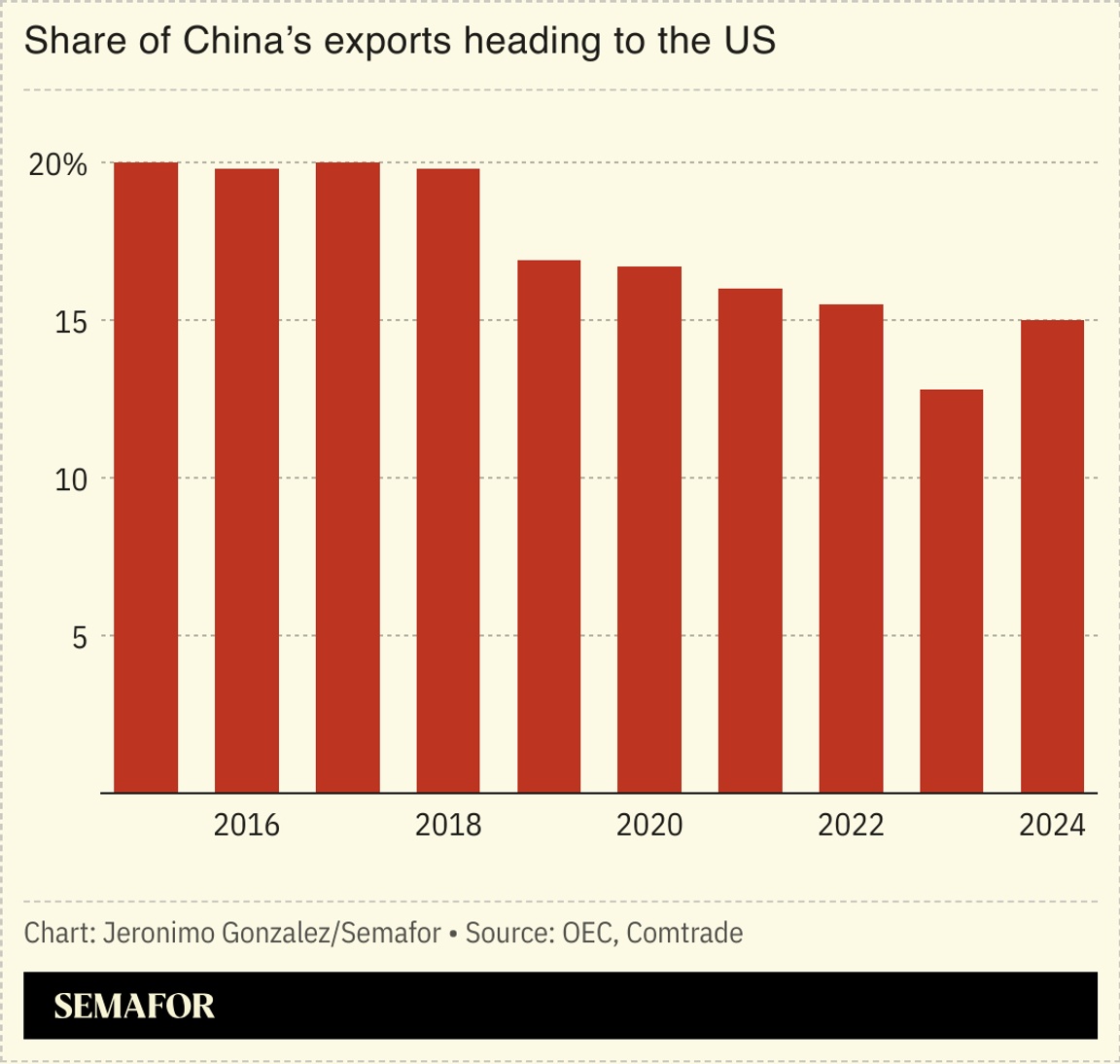 Surging Chinese exports to Southeast Asia and Europe pointed to major changes underway in global trade as a result of Washington’s tariffs. China’s exports last month grew much faster than economists expected, with another huge fall in trade with the US — sales to the country fell by more than a fifth year-on-year, after a record annual decline in May — offset by substantial increases to other parts of the world. Separately, the Danish shipping giant Maersk, whose results are closely watched by investors and economists for signals on trade patterns, reported profit that beat forecasts: “Outside of the United States, we see a continued very strong demand,” its CEO told CNBC. |
|
China’s worrying debt problem |
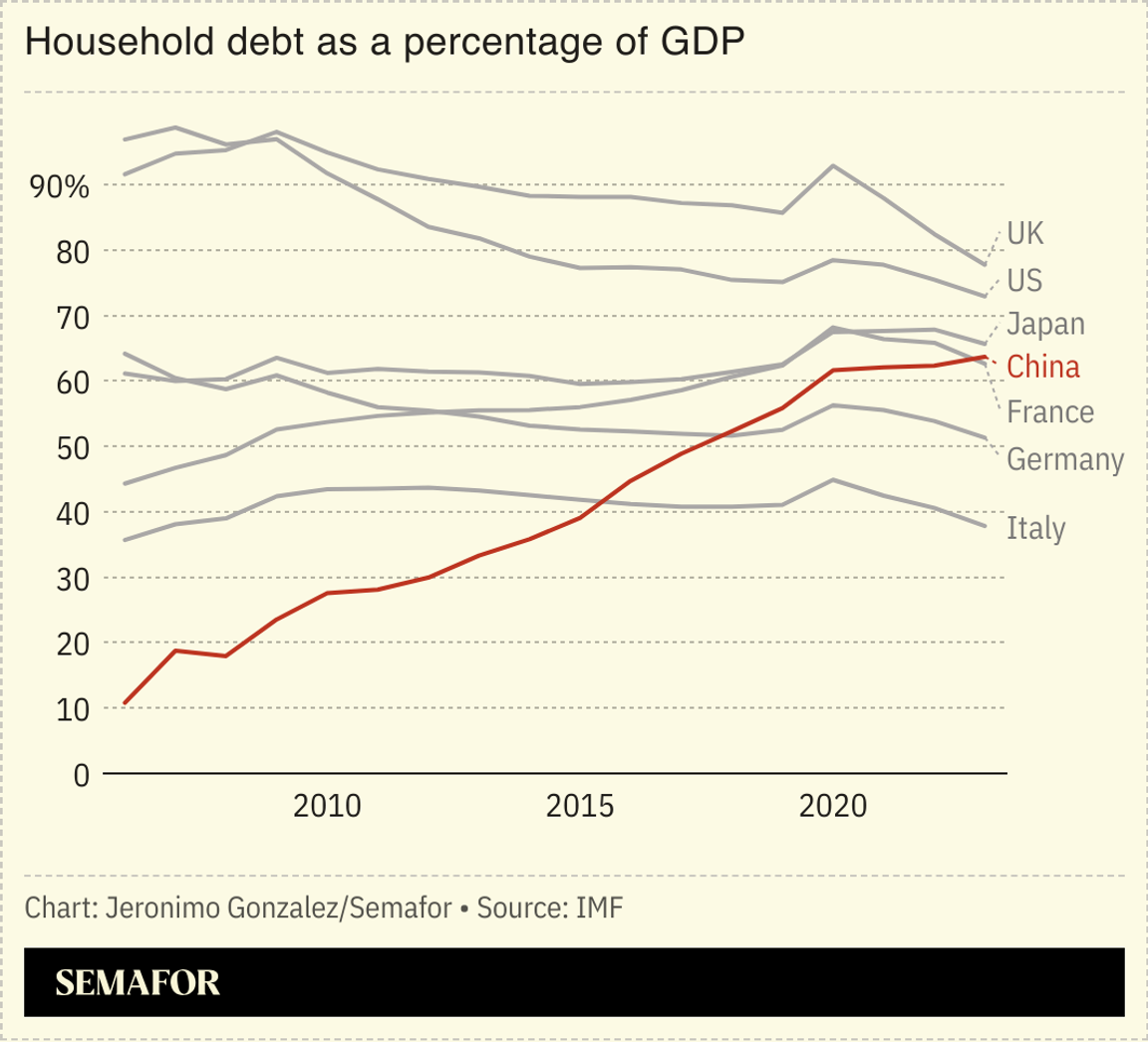 China — long a nation of savers — is seeing levels of household debt grow to worrying levels, a leading columnist warned. The country has seen savings rates surge, in part because of a property crash, as well as uncertainty over a competitive job market and slowing economy. Yet the number of people defaulting on their debts since 2019 has also doubled — a figure that could even be an underestimate, with some analysts calculating the true figure could amount to 7% of China’s working-age population. “There is a growing split in China’s economy,” The New York Times’ Li Yuan wrote. “The better-offs are saving more for rainy days. The worse-offs have little choice but to take on debt.” |
|
Israel weighs Gaza operation |
 Ronen Zvulun/File Photo/Reuters Ronen Zvulun/File Photo/ReutersIsrael is expected to approve a new plan today to take over Gaza in order to completely destroy Hamas and secure hostage releases, despite fierce opposition and warnings of a worsening humanitarian crisis in the enclave. The operation could take up to five months and would involve a phased effort involving military operations and increased humanitarian support, Israeli media reported. Yet several ministers and even Israel’s military chief have warned against the plan, with one telling an Israeli broadcaster that the country could end up “knowingly entering a Vietnam model.” The potential expansion of operations comes with Gazans facing widespread hunger and disease, and the UN warning that the scale of relief efforts remain far short of what is required. |
|
Trump-Putin talks agreed: Kremlin |
 US President Donald Trump will meet with his Russian counterpart Vladimir Putin potentially as early as next week, as Washington presses for an end to Moscow’s war in Ukraine. Though the White House and Kyiv have voiced openness to three-way talks over the conflict, the Kremlin downplayed that possibility. Russia’s announcement of the bilateral meeting comes with the US growing increasingly frustrated over the war — Trump has threatened sanctions and tariffs on Russia if a deal is not reached by Friday — and Moscow and Kyiv still far apart in their demands for peace. A significant majority of Ukrainians, at least, are in favor of a negotiated settlement, new Gallup research showed, a sharp reversal from the beginning of the war. |
|
US endorses new Bukele laws |
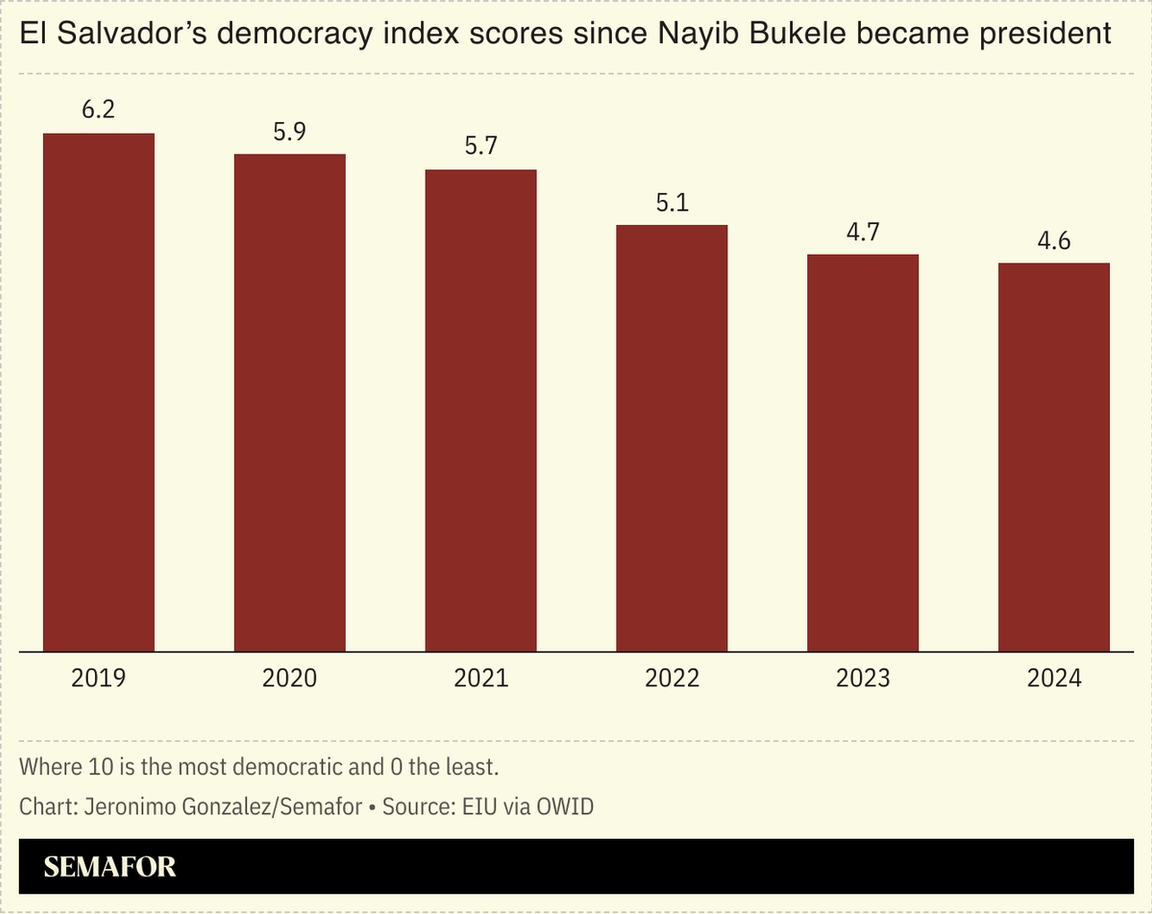 The US endorsed laws recently approved in El Salvador that will allow President Nayib Bukele to remain in power indefinitely. The backing is part of broader plans by Washington to temper criticism of the Central American nation as well as Israel and Russia, as US President Donald Trump rethinks his country’s role in “global human rights advocacy,” The Washington Post reported. Although the Trump administration says El Salvador has committed no human rights abuses in its campaign against organized crime, experts have noted that thousands have been jailed without a trial. As long as Trump remains in the White House, however, Bukele feels he has “free rein,” a Human Rights Watch expert told El País. |
|
UN’s Nigeria food shortfall |
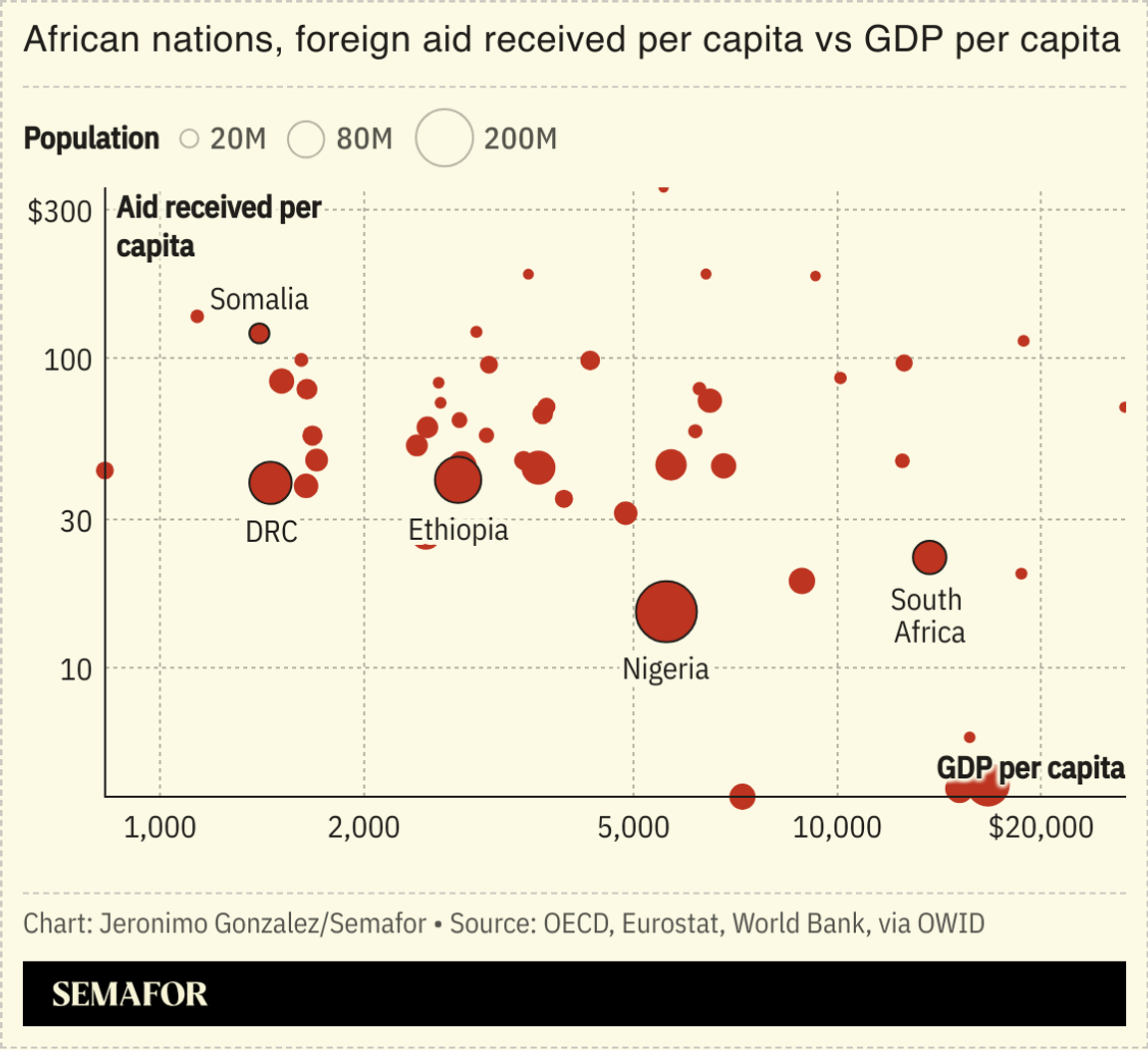 The United Nations’ food agency said it would shut half its clinics in northern Nigeria as it winds down its operations in Africa over a funding crisis. Around 30 million people face acute hunger in Nigeria, with the World Food Programme failing to raise the funds needed to support them despite an emergency appeal. The crisis reflects a worrying pattern across the continent: While global hunger levels diminished last year, they rose in Africa, figures that don’t take into account Washington’s recent shuttering of USAID, on which several nations relied. Experts have warned of an impending disaster, with food supplies running out by November. “It does mean people will start dying,” an expert said. |
|
Wildfires in Canada, France, US |
 Abdul Saboor/Reuters Abdul Saboor/ReutersWildfires across parts of Canada and the US, as well as blazes in southern France caused significant damage and sparked warnings of the impact of extreme weather events. More than 500 wildfires were burning out of control in Canada, authorities there said, and around 81 million people in the US were under air quality alerts. In France, meanwhile, the prime minister described a “catastrophe on an unprecedented scale.” Changing weather patterns, driven in large part by climate change, are having serious financial consequences: The first six months of 2025 saw about $80 billion in insured catastrophe losses worldwide, the reinsurer Swiss Re said. “Wildfire risk is evolving… with changing climates compounding the loss threat that fires present,” it said. |
|
Baseball’s first female ump |
 Bob DeChiara-Imagn Images/Reuters Bob DeChiara-Imagn Images/ReutersJen Pawol will become the first female umpire to officiate a regular game in Major League Baseball’s history. Pawol has umpired in lower leagues for almost a decade, with many of her colleagues predicting she would be the first woman to reach the highest rung. Despite the breakthrough, baseball has been slow to break the gender barrier, with female referees having long become prevalent in sports leagues across the West: The NBA saw its first female referee in 1997, and the NFL in 2012, while there are now dozens of female referees in international soccer, with the number rising 113% since 2020. |
|
Britain’s Indian food heads to US |
 Creative Touch Imaging Ltd./NurPhoto via Getty Images Creative Touch Imaging Ltd./NurPhoto via Getty ImagesBritain’s top Indian restaurants will soon open outlets in the US. The UK, which has a large South Asian population, has long produced some of the West’s best Indian food, with Birmingham in particular being home to many leading lights such as the two-Michelin-starred Opheem, and London housing several more. Now, major eateries such as Dishoom and Gymkhana — which also has two Michelin stars — are looking across the Atlantic for growth. According to Karam Sethi, head of Gymkhana’s parent company, around 30% of diners at the restaurant are American. “The US is about 10 to 15 years behind us,” one British Indian food writer told The New York Times. “I feel like the time is right.” |
|
 - The Bank of England is expected to cut its benchmark interest rate.
- Côte d’Ivoire celebrates 65 years of independence.
|
|
|